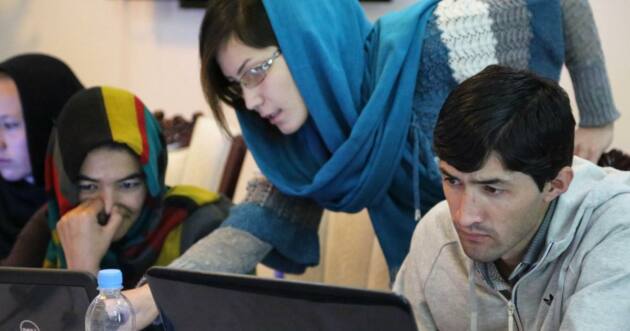Afghans delete social media after Taliban seizes U.S. spy equipment

Afghans are deleting their social media accounts after the Taliban has seized internet spying equipment abandoned by the Biden administration. The equipment could also give the Taliban the ability to spy on Americans.
The Afghanis are rightly concerned that their Facebook and other posts could be seen by Taliban forces and used to track them down for murder. And it’s not just about finding if they worked with Americans. Women who appear in selfies with their hair uncovered, with males who are not their family members or photos of girls in school could also make them targets for torture and execution.
Before the chaotic retreat, U.S. Intelligence forces used online surveillance operations looking for terror threats and now privacy advocates are raising the concern that the U.S. data program inherited by the Taliban could be used against Americans.
The New York-based group Human Rights First announced on Aug. 16 that Taliban fighters captured U.S. surveillance tools. These additional devices, known as Handheld Interagency Identity Detection Equipment (HIIDE), were used by soldiers to scan the biometrics of Afghans to match fingerprints on improvised explosive devices (IEDs), and for other such forensic investigations.
“We understand that the Taliban is now likely to have access to various biometric databases and equipment in Afghanistan, including some left behind by coalition military forces,” the human rights group said. “This technology is likely to include access to a database with fingerprints and iris scans, and include facial recognition technology.”
The Human Rights First advisory included multilingual guides for Afghan allies on protecting their digital identities.
The warning corresponds with numerous reports of Afghans deleting their social media profiles in an attempt to protect their privacy from the Taliban. USAID reportedly circulated emails to its partners in Afghanistan to “remove photos and information that could make individuals or groups vulnerable.”
American Enterprise Institute senior fellow Klon Kitchen said the security risks posed by the abandoned U.S. surveillance equipment is just one of the many consequences of a sloppy U.S. withdrawal.
A proper withdrawal would have entailed deleting all digital files in U.S. facilities and servers in Afghanistan, destroying all computers and other physical equipment, and working with tech companies and social media platforms to protect Afghan identities, Klon said in his weekly newsletter.
–Wire services








